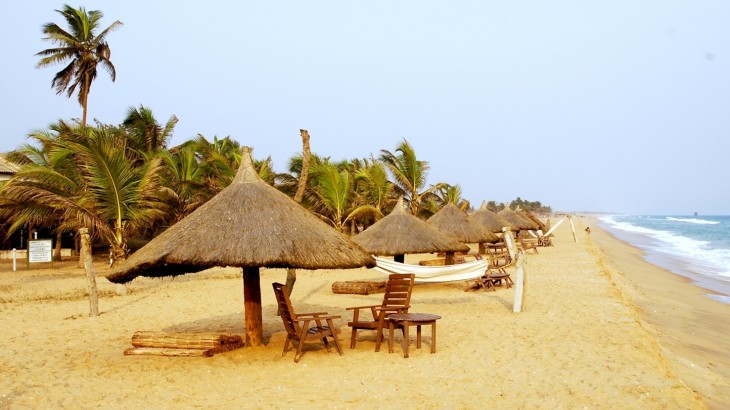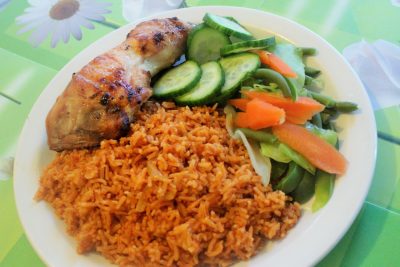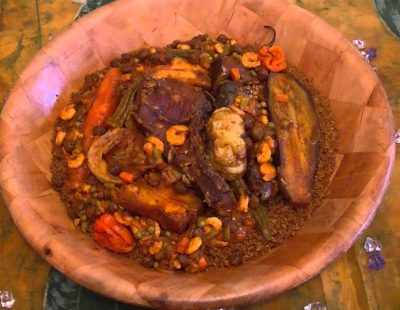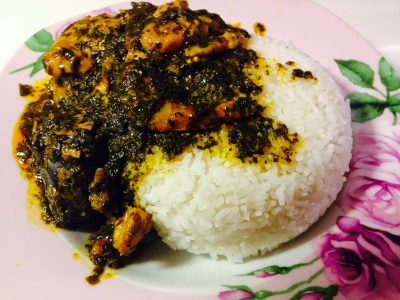
Prep for travel to West Africa
Preparation and advice for travel to Senegal, Ghana, Liberia and Nigeria (West Africa)
Upon planning a trip to West Africa there are some considerations to keep in mind and in this article we are going to guide you through the most important issues to make your trip obstacle-free and most enjoyable.
HEALTH SAFETY:
Visitors to Senegal, Ghana, Liberia or Nigeria are advised to visit their medical practitioner 6 to 8 weeks prior to departure to ensure that all vaccinations are up to date.
These include all the standard vaccinations and boosters but it will be wise to also get vaccinated against Hepatitis, Typhoid, Cholera and Meningitis. All above-mentioned countries are part of the “meningitis belt” of sub-Saharan Africa.
The governments of all West African countries require proof of yellow fever vaccination certificates upon entering the country, except for infants.
Travelers who are taking regular medications should carry them properly labeled and in sufficient quantity to last for the duration of their trip.
Malaria is a risk in most African countries, more so in West Africa, and travelers are advised to take extreme measures to prevent contraction of the disease. It is transmitted by the bite of an infectious female Anopheles mosquito and can be fatal.
The symptoms are flu-like, including fever, headaches and a general feeling of discomfort. Although malaria can be successfully treated if diagnosed in time, it is always better to take preventative measures. Your medical practitioner will prescribe prophylaxis which should be taken a couple of weeks before departure and then throughout your stay in Senegal.
Mosquitos are most active between dusk and dawn, and therefore travelers should take the utmost care by covering up as much as they can once the sun sets. Take enough anti-repellant creams or sprays, and cover the whole body with it before getting dressed.
Seek medical advice immediately if you experience any symptoms that might indicate malaria.
The Zika virus is endemic in some West African countries, and although travelers are not considered to be at risk pregnant women should discuss their travel plans with their local doctors before departure. The disease causes birth defects in babies.
There are medical facilities in most major cities, but travelers planning to visit remote areas are advised to take a medical emergency kit along. It should contain a suture / syringe kit to be used by a local health care provider, accompanied by a letter from the doctor on his / her letterhead. Diabetics should take their own testing supplies and insulin.
VISAS:
GHANA: All foreigners who will transit through Ghana have to obtain transit visas before departure from their own country.
There are some exceptions to the rule that all foreigners planning a visit to Ghana need visas to legalize their stay, like holders of diplomatic passports from certain countries.
The safest way to know whether you will need a visa is to contact the Ghana Immigration Service Headquarters or otherwise a consulate or embassy in your own country. They will be able to inform you what information they need from you and issue the visa.
SENEGAL: No visas are required for USA, British, Australian, Canadian and other EUR passport holders.
Passports must be valid for at least three months from entry and evidence of return or onward travel arrangements will be required.
All other citizens should contact their own embassies or consulates to check whether they need visas for Senegal.
LIBERIA: Passports must be valid for a minimum of six months from the date of entry into Liberia. Most nationals will have to obtain visas to enter the country so check with your local embassy or consulate how to go about obtaining a visa and what is required.
NIGERIA: The same visa requirements as to Liberia applies to Nigeria. A passport valid for a minimum of six months from date of entry, check with your local embassy or consulate on how to go about obtaining a visa.
CURRENCIES:
An important issue to keep in mind is that although money can be exchanged easily in all major cities, the same might not be true when travelers visit remote areas. It will be safe to exchange or draw enough cash before visiting rural areas.
Money can be exchanged / withdrawn at most airports, but exchange rates are normally higher.
Most hotels offer currency exchange services, but the rates will be higher than using foreign exchange bureaus or ATM’s.
Always be careful when exchanging money on the streets. You might either be defrauded or end up with fraudulent notes.
GHANA: The Ghanaian Cedi is the local currency in Ghana.
The best places to exchange your currency to the Cedi is by using foreign exchange bureaus (FOREX), of which there are plenty in the major cities. You can also exchange currency at the local banks or withdraw with a VISA card from any ATM.
You will get the best exchange rates when withdrawing from an ATM, but keep in mind that while VISA is widely accepted Mastercard has only been more readily accepted recently.
SENEGAL: CFA, Franc is the local currency in Senegal.
The country is part of the French Monetary Area. American Express cards are widely accepted, while Visa, Mastercard and Diners Club have limited use. It is preferable to carry cash for major transactions.
ATM’s are readily available throughout Senegal, but they are more limited outside Dakar. They might not accept foreign cards though.
LIBERIA: The Liberian Dollar (LRD) is the local currency of Liberia.
The United States Dollar is widely accepted but Euro can also be exchanged.
Visitors can exchange money at the international airport, at foreign exchange bureaus in Monrovia and at some banks. There are very few ATM’s and credit cards are seldom if ever accepted.
NIGERIA: Naira (NGN) is the local currency of Nigeria.
Be aware that it is ill-advised to use credit cards in Nigeria due to the prevalence of credit card fraud, and most cards are rarely accepted.
Visitors are advised to exchange currency at the official rate set by the Government and at approved exchange facilities which are mostly at major hotels. Trading on the black market is extremely dangerous and could lead to arrest.
CULTURE:
The people in West Africa are generally very friendly towards foreigners. As a matter of fact besides the scenery and wildlife people visit the region for the people: the interesting and variety of tribes, clothes, languages, food and music.
LANGUAGES: In most of the countries discussed here English is widely spoken, however in Senegal French is the official language.
You will be a real hit if you know some phrases in the local languages, and it will be a good idea to acquaint yourself with some of the basic phrases.
GREETINGS: Always, but always greet the people wherever you go. Handshakes are acceptable almost everywhere, and use the right hand.
TIPPING: It is always a good idea to tip people for good service like the waiter at the restaurant, the chambermaid at the hotel, a helpful taxi driver or a bellhop who assisted you. In some countries a 10% service charge is included, but wherever it is not included it is always a friendly gesture to give a tip.
COMMUNICATION:
This tip is going to save you a lot of money, so take note! If your phone does not allow for a dual SIM card, buy a local SIM card in the country you intend visiting for communication and internet use. It is extremely expensive if you do not make use of domestic services.
There are various applications like What’s App, Viper and Facebook Messenger which allow internet calling and texting, and data credits or phone minutes can be bought in most African countries either at hotels or airports.
This advice especially applies to US citizens who are used to unlimited phone and internet usage.
Travelers are also advised to register with their embassy in the country they are visiting after arrival. This should be done by arranging an appointment before departure from your home country as embassies do not normally allow walk-ins.
ACCOMMODATION:
To get the most out of your trip choose well-known 4 or 5 star hotels, preferably ones recommended by the Embassy or bona fide tour operators. Check that the hotel you choose has a generator system as a back for electricity. This is important because the electrical supply is rationed in most West African countries.
In Ghana you can make use of Jolinaiko Eco Tours which is a Licensed Tour Operator with the Ghana Tourism Authority (GTA) They are also registered with the Tour Operator Union of Ghana (TOUGHA). Contact them via e-mail at info@joli-ecotours.com or call them on + 233.24.7522173
In Accra consider the Movenpick Ambassador Hotel, the Kempinski Hotel Gold Coast City or La Palm Royal Beach Hotel.
Continent Tours in Senegal is a reliable, accredited company with offices in Ghana, Mali, Senegal and North America. They can be contacted via e-mail at info@continenttours.com or otherwise by calling them in Senegal on +221 78 372 3232 or in North America on +1 215 471 8299
The Radisson Blue Hotel, Dakar Sea Plaza in Dakar is a beautiful 5 star hotel with an infinity pool. Other options are the Terrou-Bi Hotel, also 5 star but a beachfront hotel with a French restaurant or if you should visit Mbour have a look at the stunning Rhino Resort Hotel and Spa.
Liberia Travel Services is based in Broad Street, Crown Hill, Monrovia. The agency is accredited and can be contacted by e-mail at liberiatravelservices@yahoo.com or call them directly on +231 677 9394.
In Liberia you can choose between the Boulevard Hotel, Royal Grand Hotel, the Bella Casa which is across the street from the Golden Beach or Palm Spring Resort in Monrovia
In Nigeria you can contact Avanti Travels Ltd. It is also an accredited tour operator and they can be contacted by e-mail on avantitravelsltd@gmail.com or call them in Lagos on 234 (1) 461 4020 /+234 (1) 793 8277
Treat yourself and book into the 5 star The Wheatbaker Hotel in Lagos. The Blowfish Hotel is a recommended 4 star hotel featuring 4 restaurants and a pool, or try the Sheraton Lagos Hotel. The Sheraton is also a 5 star hotel with an Italian restaurant. Pub, tennis courts, outdoor pool and a bar.
HOW TO GET AROUND
You will find bush taxis in all the countries mentioned in this article. These are minibuses, most charge a fixed rate and they do not operate on a timetable. They depart when they are full.
The bush taxis are mostly used by the locals, so travelers should use them as a last resort. Rather arrange a taxi service through your hotel or resort with a local guide to accompany you.
Rental cars are available in all the major cities.
In Ghana you can easily rent a car, just remember to take along an international driver’s licence. The roads are in pretty good condition and fuel is inexpensive.
You can rent a car in Senegal, and the best place to do this would be at the airport in Dakar. It is however not the ideal way to travel as road signage lacks and you will encounter lots of problems while driving like cattle crossing the roads and reckless motorists.
In Liberia vehicles and fuel can be rented through hotels, however it might be a good idea to make use of the well-run and trusted network of Guinean taxi drivers called Alpha.
In Nigeria first-time travelers would be wise to arrange a “meet and greet” service with a hotel transfer. According to “Business Traveller Africa” self-drive is not advisable or readily available from car rental companies, and the best option therefore is to take a driver with your hire car.
Only Nigeria offers a limited rail service.
CROSSING BORDERS:
If it is your intention to visit several countries and you have to cross borders on your own there are certain general tips that might help you with the crossings.
Try to avoid weekend and public holidays to go through borders, and arrive either early in the morning or just after lunch if you hate standing in long queues.
Always be polite and first visit the migration office. There are often guides who offer to assist you and it might be helpful, but find out what they are going to charge you before taking that option.
Exchange some money to the currency of the country you are going to visit, and it is important to have small bills with you. It is also wise to know what the exchange rate is before you get to the border. There should be money changers or banks at all the borders. Always have your passport with your visas and your international driver’s licence with you.
FOOD:
A fusion of smells will engulf you on arrival in West African countries. Lots of spices are used in their cooking, of which curry, ginger, garlic, onions, chilli, peppers and tomatoes are the favorites.
A typical meal in West Africa consists of starch, fish, chicken or meat with a healthy load of fat cooked in one pot.
Staple foods in West Africa are cassava, plantain, yams, maize, beans and sweet potatoes among others. Rice is also a very popular staple in almost all West African countries.
You will find peanuts in just about everything from soups and stews to snacks, pastes and garnishes.
However each country offers its own favorites and delicacies that are impossible to resist.
In Ghana expect to find lots of fresh fruit and vegetables but if you buy it from the streets make sure to wash it properly before eating, preferably in purified water. Should you buy food from street vendors pick either hot or cold dishes and avoid foods at room temperature.
A favorite dish in Ghana is Jollof Rice, and do not leave the country without trying it. It is one of the most popular dishes in most West African countries, but there are regional variations in the name and ingredients of the dish. It basically consists of rice cooked in a stew consisting of stock, tomatoes, spices and meat all boiled together. They will either serve the rice as a side dish with chicken, meat or fish, or the meat will be added to the rice.

Fish is very important in Senegalese cooking as the country borders the Atlantic ocean. Since the population is largely Muslim pork is not popular but chicken, lamb, peas, eggs and beef can be found anywhere.
Peanuts is the main crop of the country, and as staples couscous, white rice, sweet potatoes, lentils and black-eyed peas are the most popular. Like in other West African countries meats and vegetables are stewed or marinated in herbs and spices and then poured over rice, couscous or eaten with bread.
Tiéboudienne or Ceebu Jën is dubbed as the national dish of Senegal, and translated into English it means “The Rice of Fish”. It consists of fish that was marinated in a mixture of parsley, lemon, garlic, onions and other herbs, and then cooked with tomato paste and vegetables. Rice is later added to the mixture.

Similarly you will also find The Rice of Meat, The Rice of Chicken and The Rice of Peanut in Senegal.
Rice is the preferred staple of the Liberian diet. They eat their rice either dry or with a stew made from various kinds of meat or fish which is plentiful in the country and is one of the main protein sources in Liberia.
Try Maafe in Nigeria. It is a stew made with grounded peanuts, tomatoes and onions as a base. To the stew they add either chicken, beef or fish and leafy vegetables to create subtle flavors. The country is also is known for its fufu. It is a staple which accompanies most meals and can be made from cassava, yam, plantain, corn or rice. Most Nigerians use cassava to make fufu. It is boiled and then pounded until it has a dough-like consistency. It is eaten with the fingers and locals make it into balls and dip it into sauces or soups.

There is just too much to say about the variety of food and dishes, and you will just have to try as much in the time available to you.
The food is very spicy, flavorful and divine. When you eat in restaurants, try and have a look at the kitchen and then decide whether you want to stick to it or find a different one!
Drink only purified water wherever you go!
SHOPPING
Keep enough money aside for shopping in West Africa! Foreigners wanting to do some shopping anywhere in Africa will do best at local markets where you will be able to buy indigenous arts and crafts. Each tribe throughout the continent makes their own traditional handicrafts which can usually be bought at local markets.
The art and handicraft you will find in most of the West African countries include masks, bronze sculptures, woodcarvings, leather goods, batik and traditional clothing. Useful items that can be bought are amongst others baskets, pottery and woven fabrics.
If you are into shopping and Ghana is on your itinerary, you are in for a treat! The country boasts at least eight modern malls, of which West Hills Mall in Accra is the largest. Best of all is that the mall is open 24 hours, as is the Marina Mall.
Whether just for fun or as gifts or souvenirs for yourself, buy from markets like the Makola Market in Ghana. It is a huge open air market where you can buy anything from sea snails to jewelery! That is where you will experience the local people, mix with them and experience the sounds, smells and tastes of Africa.
In Liberia, if you have enough time, you can have leather clothes, wallets, bags or sandals made by skilled leatherworkers. It is inexpensive and the tailors are skilfull. Clothes are made to measure and other leather items can be personalised.
In the capital, Monrovia, visit Waterside Market in Water Street. You will find everything you need there and remember to bargain!
If your itinerary includes Lagos in Nigeria and you love shopping, you will have the time of your life. The city offers malls, markets and boutiques and on planning your trip you may want to set aside at least one day to explore the shopping opportunities.
On Lagos Island and the Lekki Peninsula you will find the bigger shopping malls. You will find good buys to take home at Victoria Island’s Palms Mall, Megaplaza and Park ‘n Shop.
If you are looking for African fabrics, Senegal is the place to go. The country has the largest supply and variety of African fabrics than most other African countries.
Sandanga is the biggest market in Dakar and certainly worth a visit. On Lamine Gueye, adjacent to the market, you will find the fabric shops.
Kermel Market should also not be missed. It is located in a circular building, it is quieter than Sandanga and has a lot of character.
Wherever you shop, be prepared to bargain and start with half of what you are prepared to pay for an item.
Haggling is almost expected, but it is an art which can only be mastered by practising it. Always be friendly. If you are aggressive you won’t get anywhere. A smile goes a long way!
Flatter the seller, be friendly and play on their emotions. It helps when you say you have little money left and you are on your way home, or that you have to take a gift for a child or a family member but you have very little money.
You will almost always get a better price if you buy more than one item, especially when you buy in bulk. The seller is sure to be swayed if he / she realises that they can get a good deal if they are prepared to lower their price in order to swing a couple of items at a time.
If you cannot make a deal try another dealer. Chances are that they are related, but it is worth a try. Very often once you have made your last price and walk away the dealer will call you back and you will pay what you offered in the first place.
WHAT CLOTHES DO I PACK FOR MY VISIT TO WEST AFRICA?
In the countries that we are discussing here travelers must expect tropical climates with dry and rainy seasons.
The rainy season in Ghana stretches from March to November.
In Senegal the rainy season falls between June and September/October during which period some of the national parks close.
The climate in Liberia is tropical and humid all year round, but the rainy season stretches from May to October. The country is very dry from December to February.
The rainy season in Nigeria lasts for three or four months from June to September.
Pack sensibly. You are visiting a region where your visit is most likely going to include visits to beaches, game reserves, cities, mountains or forests.
Leave expensive jewellery at home. You do not need it in Africa and it might only make you a target.
Traditional values play a major role and therefore women should take comfortable clothes and leave designer labels at home. Do not reveal too much flesh and be modest.
Shorts are acceptable dress for women as long as it is not too short – it should at least reach the knees.
You are going to walk a lot, so take comfortable shoes, ;preferably not new ones, that you can wear anywhere. If you plan hiking or walks in forests take appropriate shoes. It is most frustrating to take new shoes that fit comfortably but cause blisters on your second or third day in a strange country.
When you go into rural areas or villages dress as comfortably and conservatively as possible. Respect their traditions and dress accordingly.
If you plan to go to nightclubs the same rules apply. Men are expected to wear long pants and women can dress smartly but cover up. Showing too much flesh might bring you into trouble that you do not want or need.
